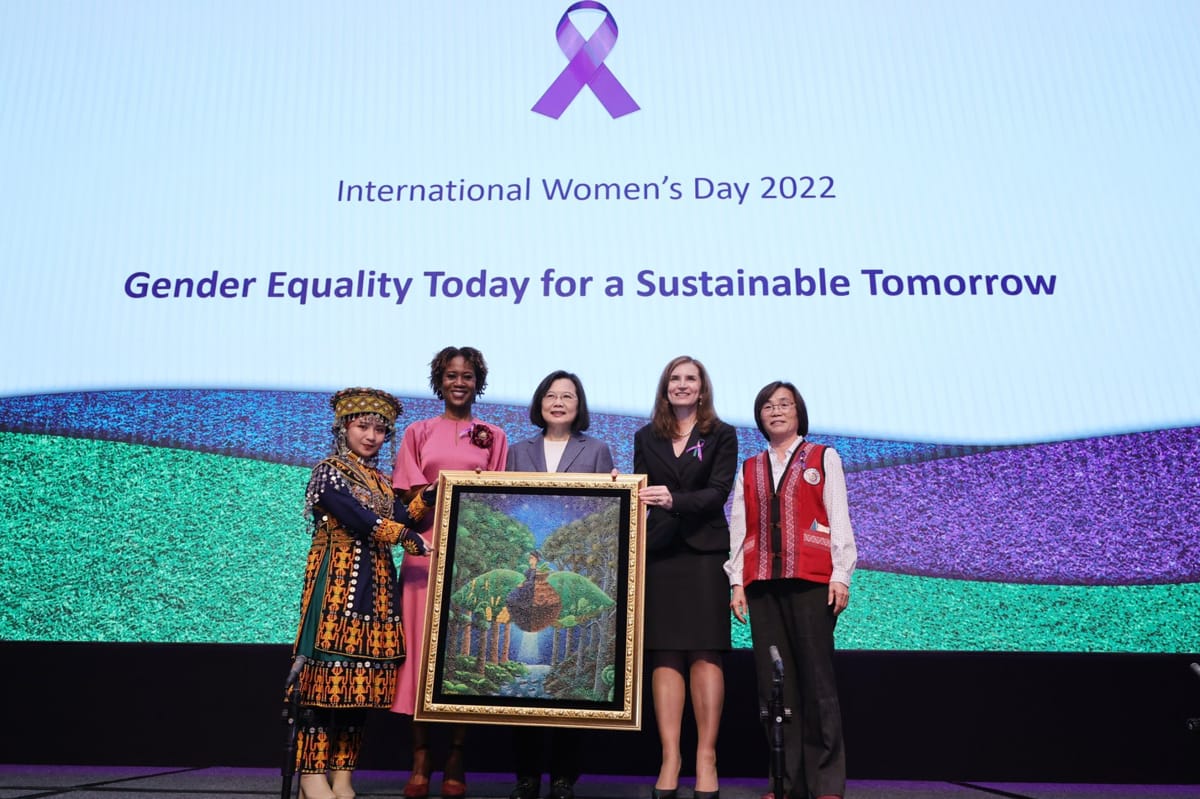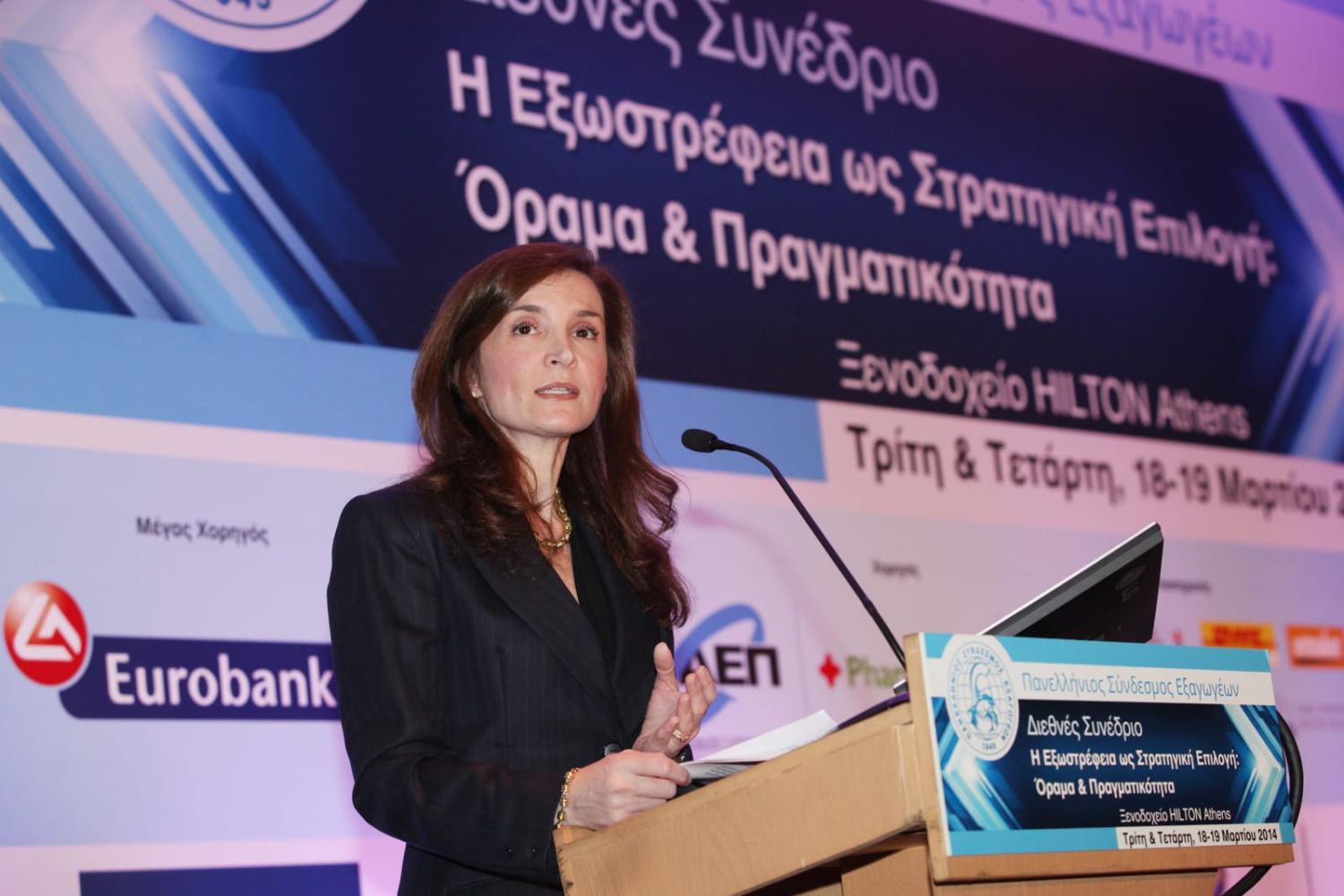After 29 years of service, last week I retired from the Department of Foreign Affairs and Trade. I am an unlikely Australian diplomat, having joined DFAT as a graduate trainee in 1995, 14 years after migrating to Australia from Greece. Like many migrant Australians, my family and I had to learn English, adapt to a new culture and way of life and work hard to provide a better life and contribute to the community.
A diplomatic career is like holding a mirror up to the face of Australia. Our diplomacy reflects who we are – a nation with an Indigenous history stretching back millennia and a rich mosaic of people from every corner of the Earth, bound together by a commitment to values of equality, democracy and freedom, respectful of our diversity, dignity and individual rights and freedoms and supporting each other and our community. Wherever we may be around the world, Australia’s diplomats espouse and project these values, work to build common ground, and promote in a practical way Australia’s security and prosperity.
My DFAT career has taken me from the Australian embassy in Tehran where, as the embassy’s first female policy officer, I reported on political, strategic and human rights developments in Iran under then reformist President Muhammad Khatami, to Counsellor and head of the Political/Strategic Section of the Australian embassy in Tokyo, where I helped deliver the historic Joint Declaration on Security Cooperation and Action Plan, laying the foundations for the ever-closer strategic partnership between Australia and Japan.
I led DFAT’s Middle East Branch during the Arab Spring, and the Human Rights and Gender Equality Branch during the AusAID integration and ahead of Australia’s campaign for election to the UN Human Rights Council for the first time. I headed the Office for Women in the Department of Prime Minister and Cabinet on secondment, delivering the PM’s domestic violence agenda; and DFAT’s Victoria State Office in Melbourne, leading our domestic diplomacy in Australia’s second-most populous state. I worked in DFAT’s West Europe, Asia Pacific Security, United States and human resources areas.
I accompanied my husband James while he was deputy ambassador at the Australian embassy in Buenos Aires, where I learned Spanish and Japanese. Together, we raised four children, and I ended up speaking eight languages.
Australia is a nation like no other, and so, even more remarkably, as a career diplomat in 2011 I found myself being nominated as Australia’s Ambassador to Greece. My term coincided with one of the most difficult periods in Greece’s recent history as the country worked to overcome the profound Greek and eurozone debt crisis.
But the appointment of the first Australian of Greek descent, and the first woman, as Australia’s ambassador sent a powerful message of Australia’s solidarity, generosity and compassion and was strongly welcomed by our Greek friends at that most difficult time. We also practically assisted Greece’s reform efforts by sharing expertise from Australia’s own successful record of productivity-enhancing reforms; established the first ever Hellenic-Australian Business Council to boost two-way trade and investment; and deepened links between Greece’s world-leading shipping industry and Australia’s resource sector. Greek shipping has long played a vital role in transporting Australian resources to our key markets, enhancing national prosperity.
The work of diplomats directly impacts Australia’s interests – our reputation and standing in the world, as well as Australians’ well-being – by creating jobs, building skills and increasing trade and investment opportunities, and by protecting and promoting the values that make Australia and Australians who we are, in our region and globally.
In Taiwan, from where I have recently returned, in the face of the unprecedented challenge of the Covid-19 pandemic, we worked with a key like-minded partner and deepened cooperation across the range of our interests – from resources trade and the clean energy transition to health and biotechnology, financial services, education and English language learning, to human rights, gender equality and Indigenous opportunity. We nearly tripled two-way trade, and Taiwan was Australia’s fifth-largest goods export market with more than AU$30 billion of exports at the end of 2022, directly supporting Australian jobs and trade and investment opportunities with a key economy, the world’s 21st-largest.

Contemporary Australia rightfully has a positive image. Australians from all backgrounds have worked together to build one of the world’s most open, diverse societies and one of the most successful economies, deeply committed to individual rights and freedoms, the rule of law and equality of opportunity for all regardless of race, gender, religion or cultural background. We define ourselves not by where we come from, but by our shared commitment to these values.
These same values inform our approach to the world and how we engage with international partners – Australians believe in, and advocate, a world order that is governed by clear, agreed rules and where the human rights and freedoms of all peoples are protected. And if representing Australia internationally has taught me one thing, it is that Australia’s influence globally is amplified by our values and principles – they are the foundations of our national strength.
But the image can be rose coloured. Some may say cracks are appearing. Our Australian values, freedoms and way of life cannot be taken for granted – they need to be continuously nurtured and protected. And our success in the world, and ability to influence regional and global events in our interest, will depend on how we fare at home – the strength of our democracy, the resilience of our institutions, our ongoing economic success, a renewed commitment to our shared values as a community and as individual Australians.
We have work to do. Like reinforcing social cohesion. Supporting families, and those in need. Ensuring women and children are safe. Empowering young people by strengthening competitiveness and academic skills. Increasing productivity and real incomes. Closing the gap between Indigenous and non-Indigenous Australians. Revitalising regions and investing in housing and infrastructure. Respecting teachers, nurses, those who serve our country and those on the front line keeping our community safe. Investing in our defence including through local industries.
Most importantly, we need to rebuild trust, by taking forward policy and decision-making that are transparent, honest, accountable, and respectful of the interests of all Australians. This will make for a stronger Australia, working with our partners to ensure a world that is open, inclusive, safe and free.

